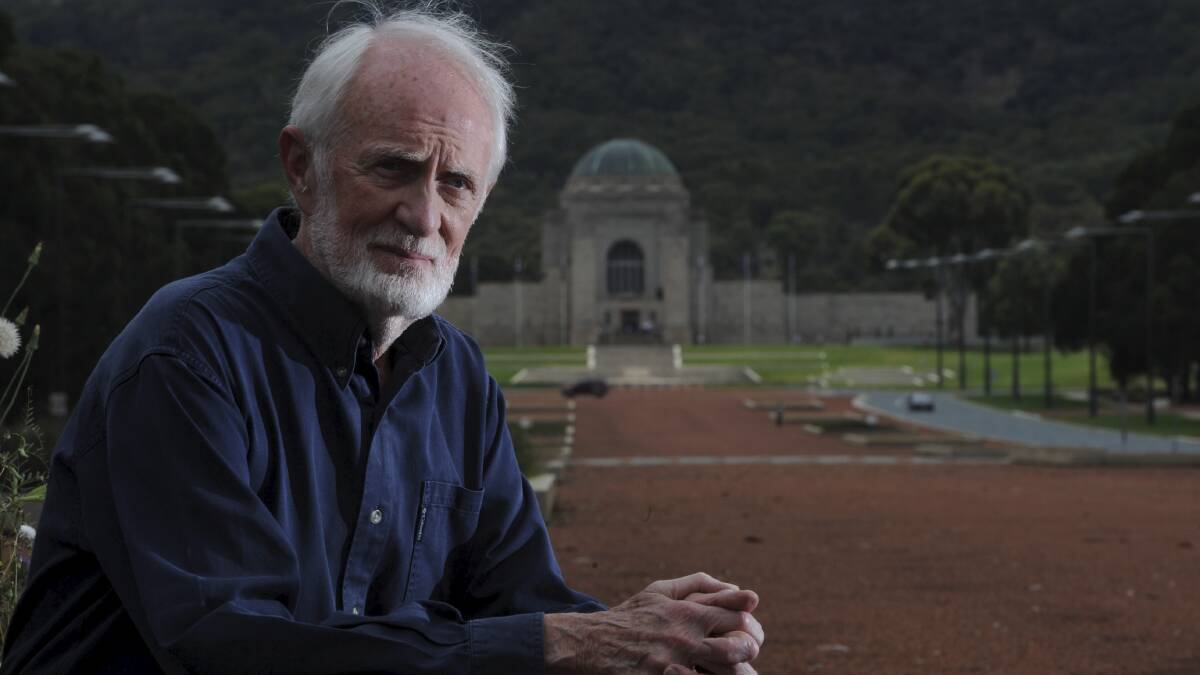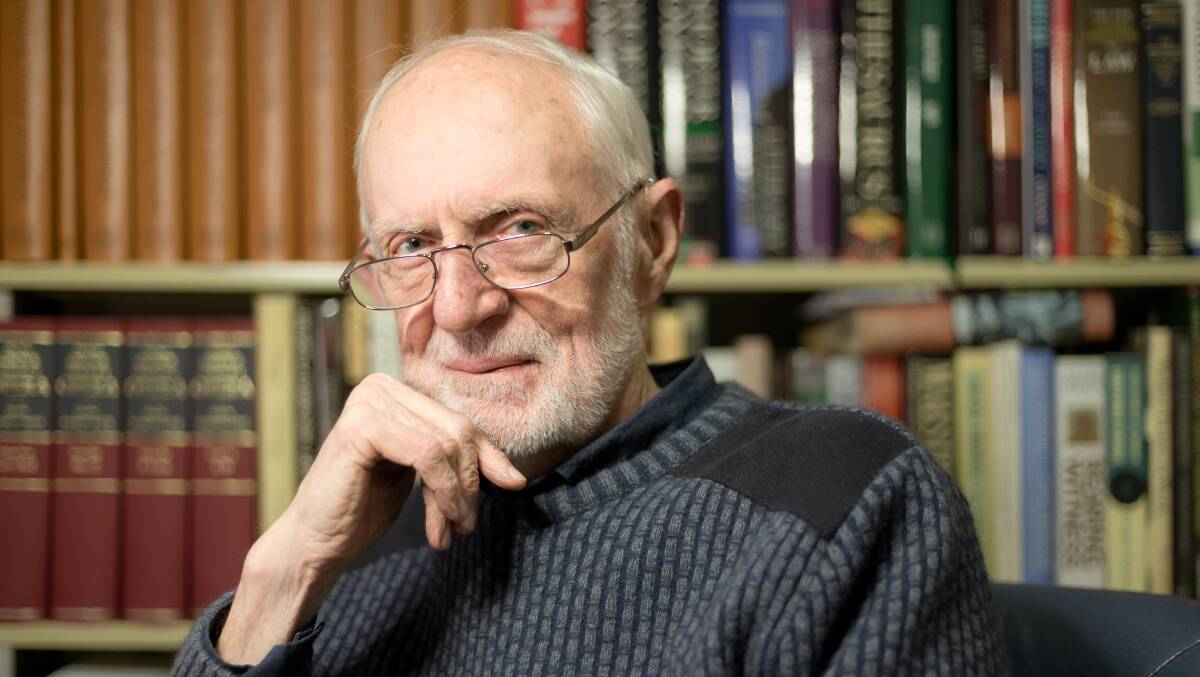
Brendon Kelson, who led the Australian War Memorial as its director between 1990 and 1994, has died aged 86.
Subscribe now for unlimited access.
or signup to continue reading
Mr Kelson was instrumental in the repatriation of the unknown Australian soldier killed on the Western Front and now buried in a tomb at the centre of the memorial. The tomb has been visited by hundreds of thousands of Australians paying their respects.
In recent years, the former war memorial director was a vocal critic of the $498 million plan to expand the revered and popular institution, which he believed risked turning it into a theme park of military hardware.
Mr Kelson has been remembered as a towering intellect and a passionate advocate for Canberra in tributes on social media.
His son, former ABC journalist Marcus Kelson, on Thursday morning wrote on Twitter: "My beautiful dad, Brendon Kelson, husband of Jenne, father of myself, and my brother Adrian, former husband of my late mother Patricia, has left us for good".
"He is no longer in pain and in the end everything was about peace and love. Rest in Peace."
Historian and former war memorial deputy director Michael McKernan said Mr Kelson's greatest achievement was leading the interment of the unknown Australian soldier.
"He was a magnificent director of the war memorial," Mr McKernan said.
The military service of Mr Kelson's father, who served in World War I, was a motivator for him in supporting and caring for veterans, Mr McKernan said.
Historian Peter Stanley, formerly the war memorial's principal historian, said all in the galleries and museum sector would mourn Mr Kelson.
Mr Kelson appeared to him in the 1980s as the embodiment of the skilled arts public servant, Professor Stanley said.
"His judgment and Canberra-savvy became more apparent as we knew him and worked with him," the historian said.
"After retirement (his contribution as the war memorial's director sadly unrecognised) he took a leading role in helping to preserve the Australian War Memorial from unjustified expansion, speaking out with wisdom and dignity."
The Australian War Memorial said its council and staff were saddened to hear of Mr Kelson's passing.
"In his time at the helm of the memorial Brendon made significant contributions including overseeing the interment of the Tomb of the Unknown Australian Soldier," it said.
"Our thoughts are with his family and friends at this sad time and to his colleagues who worked with him at the memorial."
Before serving as its director, Brendon Kelson was the war memorial's senior assistant director for eight years, having joined the organisation in 1982 after serving as the founding secretary and manager of the Australian National Gallery from 1977 to 1982.

He had a distinguished career in the Australian Public Service that included a role as assistant secretary for cultural policy at the Department of the Prime Minister and Cabinet (1973-1977) under both prime ministers Gough Whitlam and Malcolm Fraser. He also served on councils and associations for Australian museums.
In 1993, as war memorial director, Mr Kelson travelled to Adelaide Cemetery, near Villers-Bretonneux in France, where the Commonwealth Graves Commission had identified four resting places of unknown soldiers for possible repatriation.
The remains of one of those graves were exhumed, and after a five-day journey to Canberra, they were laid to rest in the Tomb of the Unknown Soldier at the Australian War Memorial on Remembrance Day 1993. Prime Minister Paul Keating delivered a eulogy for the soldier at the nationally-televised funeral ceremony.
READ MORE:
Mr Kelson in recent years was a member of the Heritage Guardians, a group opposing the major expansion of the war memorial since it was announced in 2018. It was joined in its opposition by some of Australia's most prominent writers, historians, journalists, former public servants and political leaders.
Heritage Guardians convenor David Stephens paid tribute on Thursday, saying: "Brendon knew there was more to the commemoration of war than emotional ceremonies and ever-larger buildings".
"His practical wisdom and burning passion made a great contribution to the Heritage Guardians campaign against the destruction and desecration of the War Memorial he loved.
"He will be missed by everyone who believes there should be more to Australia's future than the drums of war and the grieving of families."
Major demolition and construction works for the expansion began last year after the project received approval from the National Capital Authority, environment and heritage regulators, and Parliament.
The former memorial director vigorously opposed the project - including the recent demolition of the award-winning, 20-year-old Anzac Hall - saying the funding would be put to better purpose in the interests of other national institutions, veterans and their families.
In a letter opposing the expansion, he quoted memorial originator Charles Bean: "The national memorial building... should not be colossal in scale but rather a gem of its kind".


